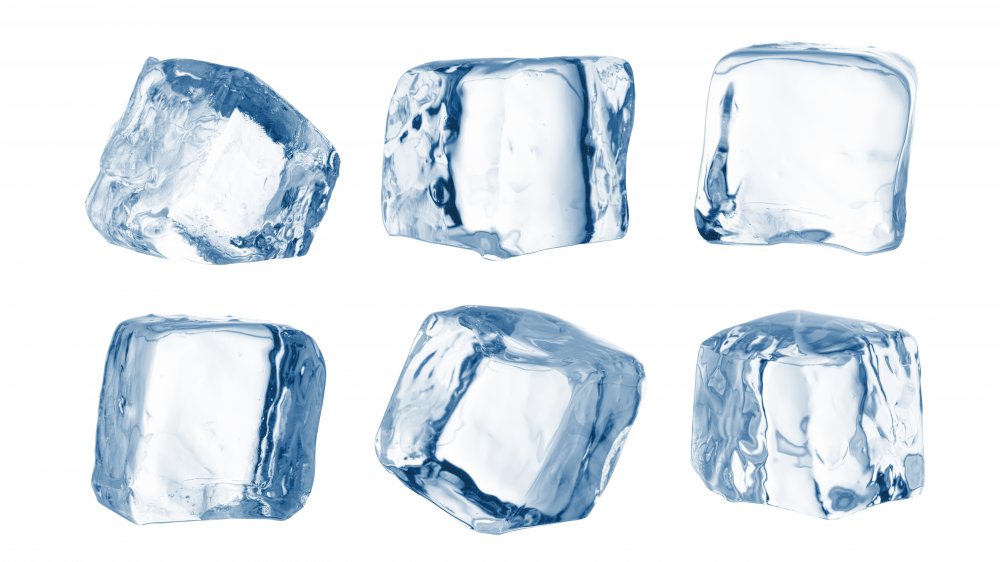Why You Don't Want To Be Intimate During Quarantine

We're currently living in unprecedented times. The COVID-19 pandemic has forced us to change the way we live, work, and interact with others. One of the most significant changes has been the way we view intimacy. For many of us, intimacy is now seen as a potential health risk. We're being advised to avoid physical contact with others, and that includes sexual activity. This is understandable given the fact that the virus is primarily spread through close contact. However, there are a few things to consider before you completely forego intimacy during quarantine. First, it's important to remember that intimacy doesn't just refer to sexual activity. It can also refer to non-sexual physical contact, such as hugging, cuddling, and kissing. Second, even though the risk of contracting COVID-19 through sexual activity is low, it's important to remember that the virus can still be transmitted through close contact. If you or your partner are showing any symptoms of the virus, it's best to avoid any type of physical contact. Third, while the risk of contracting COVID-19 through sexual activity is low, there are other risks to consider. If you have multiple partners, you're at a higher risk of contracting other sexually transmitted diseases. And if you're not using protection, you're also at a higher risk of unwanted pregnancy. Fourth, quarantine is a stressful time for everyone. We're all dealing with anxiety and uncertainty, and that can take a toll on our mental and emotional health. Intimacy can be a way to reduce stress and promote relaxation. Fifth, and perhaps most importantly, we need to remember that we're all in this together. We're all dealing with the same challenges, and we all need to support each other. Physical intimacy can be a way to show your partner that you care about them and that you're there for them. So, if you're considering whether or not to be intimate during quarantine, there are a few things to keep in mind. The risk of contracting COVID-19 through sexual activity is low, but there are other risks to consider. Intimacy can be a way to reduce stress and promote relaxation. And we all need to support each other during this challenging time.
It's hard to feel sexy when you're in survival mode
When you're just trying to get through the day, it's hard to feel sexy. You're too busy worrying about bills, or your job, or your kids. You don't have time to feel sexy. But feeling sexy is important. It's important to feel desired, and to feel like you're desirable. Feeling sexy can make you feel more confident, and more in control. It can make you feel like you can handle anything that comes your way. So how can you find the time to feel sexy, when you're in survival mode? Here are a few tips: 1. Make time for yourself. Whether it's a few minutes in the morning to do your hair and makeup, or an hour at the gym, make sure you're taking some time for yourself. This is time that you can use to focus on feeling sexy. 2. Wear something that makes you feel good. It doesn't have to be something sexy, just something that makes you feel good about yourself. If you feel good about yourself, you'll be more likely to feel sexy. 3. Flirt with your partner. If you're in a relationship, make sure you're still flirting with your partner. Flirting is a great way to feel sexy, and it'll also help keep the spark alive in your relationship. 4. Get out and about. Sometimes, all you need is to get out of the house and interact with other people. When you're around other people, you're more likely to feel sexy. 5. Be confident. Confidence is key when it comes to feeling sexy. If you don't feel confident, it'll be hard to feel sexy. So work on building up your confidence, and you'll be feeling sexy in no time.
Recommended
NEXT UP
Why Chewing Ice Could Be Ruining Your Teeth

Chewing ice is a common habit, but it could be doing serious damage to your teeth. The extreme cold can cause your teeth to crack and chip, and the hard texture can wear away at your enamel. If you're a frequent ice chewer, you may not be aware of the damage you're doing to your teeth. But over time, this habit can lead to serious dental problems. Here's why you should kick the ice-chewing habit: 1. It can damage your teeth. The act of chewing ice puts a lot of stress on your teeth. The extreme cold can cause your teeth to crack and chip, and the hard texture can wear away at your enamel. 2. It can be painful. If you have any existing dental problems, such as sensitive teeth or gum disease, chewing ice can be extremely painful. It can also irritate your gums and cause them to bleed. 3. It's a waste of money. If you're constantly replacing chipped and cracked teeth, you're going to end up spending a lot of money on dental bills. It's simply not worth it in the long run. 4. It's bad for your health. Chewing ice can actually be bad for your overall health. The extreme cold can cause headaches and migraines, and it can also aggravate conditions like arthritis. 5. It's annoying. Let's be honest, chewing ice is pretty annoying. If you're constantly chomping on ice cubes, your family and friends are going to get pretty fed up with it. So there you have it. Chewing ice is bad for your teeth, your health, and your social life. If you're still not convinced, just ask your dentist. They'll be happy to tell you to stop chewing ice!
Why do we crave ice to begin with?
There's nothing quite like a brain freeze to ruin a perfectly good cup of ice water. But have you ever stopped to think about why we crave ice to begin with? It turns out, there's a scientific reason behind our love of all things frosty. Here's the scoop: when we eat or drink something cold, it activates the trigeminal nerve, which is responsible for both temperature sensation and pain perception. This nerve then sends a signal to the brain that says, "Hey, something cold is touching my face!" In response, the brain sends a message back to the trigeminal nerve to numb the area to protect it from the cold. But here's the kicker: the brain also interprets this numbness as pleasure. So not only do we get relief from the cold, we also get a little hit of pleasure from the brain freeze itself. That's why we keep coming back for more, even though we know it's going to hurt. So next time you're reaching for that cup of ice water, remember: you're not just satisfying your thirst, you're also giving yourself a little brain freeze fix. Enjoy!


